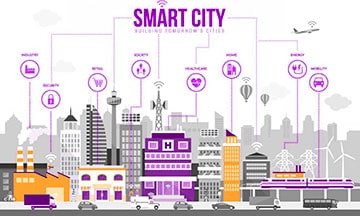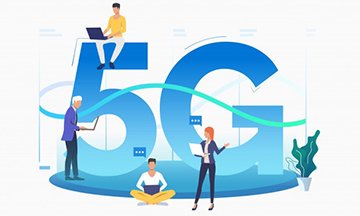Digital Signal Processing (DSP) Course
Course Overview
What is Digital Signal Processing (DSP) course? DSP is that branch of Electrical engineering which has made possible rapid improvements and incredible innovations in the field of telecommunications and entertainment (e.g., VOD and OTT).
DSP has employed the principles of computer science, telecom, and electronics engineering and is at the centre of the digital evolution, bringing with it many life-changing devices e.g., mobile phones, music players, media storage devices like CDs and DVDs.
This course will delve into all the aspects of DSP starting from the basics of discrete-time signals, proceeding to the use of Fourier transforms for data analysis, learning the use of digital filters to manipulate data, analog to digital conversion, and implementation of real-time DSP algorithms on the general-purpose microcontroller. Hands-on exercises will be undertaken to solidify the theoretical knowledge.
This Zoe training course will empower you with strong fundamental concepts and understanding of DSP and its importance worldwide today. By undertaking this course, you will gain detailed information and knowledge about all aspects necessary to understand DSP and to be able to optimally utilise it for your organisation.
Since DSP is increasing in importance and is the need of today, this course will equip you with the required skillset and capabilities to introduce/implement DSP in your organization and to enable the learners to efficiently fulfil higher roles and responsibilities, thus fostering career growth and progression.
Course Objectives
The main objective of this Digital Signal Processing (DSP) Course is to empower professionals with—
- Detailed knowledge and understanding of the fundamental concepts of DSP
- The essential skillset and capabilities to not only introduce but also successfully manage technology and automation in the organisation
- The necessary confidence and knowledge to train other professionals on the basics of DSP
- The confidence and ability to measure, track and enhance organisational efficiency and growth through the introduction of DSP, in turn demonstrating talent and potential and inviting further opportunities for growth and progression
- The capability and knowledge to check and enhance existing processes, making them faster, more accurate, and leaner
- The capabilities and knowledge to secure a competitive edge for one’s organisation in the DSP market space
- The necessary perspective and foresight to pre-empt challenges, risks, and hindrances and address these to prevent them from hampering the progress of the organisation from the technological point of view
- The proficiency to increase client satisfaction through better, faster, and more secure services to them at the least cost possible
Training Methodology
This collaborative Digital Signal Processing (DSP) Course, will comprise the following training methods:
- Lectures
- Seminars & Presentations
- Group Discussions
- Assignments
- Case Studies & Functional Exercises
Zoe Talent Solutions follows the ‘Do-Review-Learn-Apply’ model.
Organisational Benefits
By professionals undertaking this Digital Signal Processing (DSP) Course, their organisations will derive the following benefits:
- Experienced and trained professionals to effectively introduce and manage DSP within the organisation
- Free and regular training of other employees on working with advanced tools and technologies for greater efficiency
- Enhancement in current systems and processes to make them leaner
- Increased organisational efficiency and growth
- Competitive advantage in the DSP market space
- Application of advanced concepts and techniques of DSP in the organisation
- Increased client satisfaction, leading to increased organisational growth
- Leaner operations and hence reduced costs
- Greater investments as a result of better risk assessment and management
Personal Benefits
Professionals enrolling for this Digital Signal Processing (DSP) Course will derive the following benefits:
- Detailed understanding and knowledge of DSP
- Increased awareness on advanced techniques and concepts related to DSP
- Boosted capability to not only introduce DSP in one’s organisation but also successfully manage it for optimal results
- Enhanced perspective and prudence to foresee challenges and hindrances and act upon these to prevent adverse effects on the growth prospects of the organisation
- Greater capability, skill, and experience to undertake critical roles and responsibilities related to DSP and ensure a positive impact on the growth of the organisation, in turn demonstrating one’s potential and talent, fostering career growth and development
- A sense of satisfaction in attaining client satisfaction and delight through better and faster financial services
- Increased potential, comprehension, and knowledge to reduce costs through automation and other techniques for leaner operations
- Increased knowledge, experience, and confidence to achieve a competitive advantage for one’s organisation in the DSP market through the application of advanced techniques and strategies
Who Should Attend?
- Senior management of an organisation who play a key role in financial and technology-related decisions for the organisation and who need to understand the prospect of DSP
- Technical advisors and managers responsible for providing strategic guidance and inputs to the top management for saving costs and increasing profits
- Managers and leaders of other teams who use software to develop their departments’ efficiency and quality
- End-users of certain DSP platforms who need to know how to best utilise the platform/software to derive the best results
- Any other engineers/ professionals who would like to know more about DSP fundamentals
Course Outline
The course covers the following areas important for understanding DSP fundamentals:
Module 1: What is DSP?
- What is digital signal processing?
- Discrete-time signals
Module 2: The Karplus-Strong Algorithm
Module 3: Complex Exponentials
Module 4: Signal Processing
Module 5: Vector Spaces
Module 6: Fourier Analysis
Module 7: Digital Filter
- Working of digital filters in time and frequency
- Filter design using z-transform and numerical tools
- Stochastic and adaptive signal processing
Module 8: Analog and Digital
- Continuous vs. discrete time
- Interpolation and sampling
- Aliasing
Module 9: Analog and Digital Contd.
- Multirate signal processing
- Quantization
- A/D and D/A converters
Module 10: Applications of DSP (1)
- Image processing
- JPEG Compression standard
Module 11: Applications of DSP (2)
- Digital communication systems and methods: Voiceband modems and ADSL
Module 12: Real Time Audio Signal Processing











